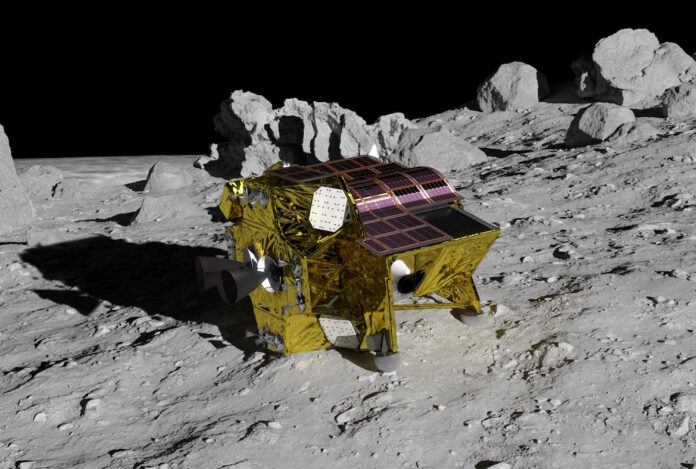Japan’s first lunar lander has officially powered down on the moon after its solar cells were unable to generate electricity, though the nation’s space agency said there is a possibility of turning things around when the direction of the sun’s rays change.
Japan made history last week when its lander, called Smart Lander for Investigating Moon (SLIM), successfully touched down on the moon’s surface last week. Shortly after landing, directors of the mission explained that while the soft landing was a minimal success, the spacecraft’s solar cells were not generating power.
An update, posted yesterday on X, appears to confirm that the solar cell anomaly is related to an “attitude,” or pointing, issue with the spacecraft, as opposed to some electrical or mechanical issue with the solar cells themselves.
“According to the telemetry data, SLIM’s solar cells are facing west,” the Japan Aerospace Exploration Agency (JAXA) said in the update. “So if sunlight begins to shine on the lunar surface from the west, there is a possibility of generating power, and we are preparing for recovery. SLIM can operate with power only from the solar cells.”
In the meantime, JAXA said that the battery was disconnected at a 12% power level, as planned, to avoid over-discharge.
Japan can count a handful of other major wins in the mission, even if the solar cells never manage to charge up sufficiently for a recovery operation. The agency “obtained a lot of data” from the landing descent and on the lunar surface, officials said; in addition, the two rovers that were aboard the lander were successfully deployed on the surface.
The agency has yet to announce why the spacecraft did not land pointing in the right direction, but JAXA officials are preparing an additional update on the status of the spacecraft at the end of the week.
“Although the attitude after landing did not go as planned, we are glad we could [sic] achieved so much and are happy to have landed successfully,” the agency said. “We’re also excited to analyze the data.”


